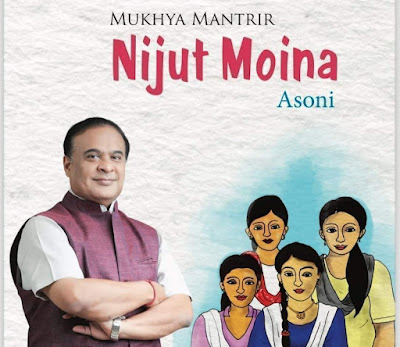Indian Model of Secularism An Analysis – Important Article for UPSC, IAS, Civil Services and State PCS Examinations
What is Secularism?
Secularism means a secular state. Secular state as defined scientifically means a state, which guarantees every individual and corporate freedom of religion, deals with the individual as citizen irrespective of his religion, is not constitutionally connected to a particular religion nor does it seek either to promote or interface with religion upon closer examination. It will be seen that the conception ot a secular state involves three distinct but inter related sets of relationship concerningthe state, religion and the individual.
The essence of secularism depends on two basic principles —
1. Separation of religion from politics.
2. Acceptance of religion as purely and quickly private affair of individuals having nothing to do with the state.
Features of Secularism —
The following are the basic features of secularism —
i) No state religion
ii) freedom of religion
iii) equal respect for all religion
iv) No discrimination on the basis of religion
Indian Model of Secularism — Secularism in India —
Secularism has been one of the important ingrediants of the constitution of India which signifies that —
i) The state have no religion
ii) All citizens have fundamental rights to follow and propagate their own religion
iii) The duty of the state to protect life liberty and property of all citizens provide security to them and enable them to exercise their fundamental rights.
Nehru on Secularism :
Jawaharlal Nehru has been leading champion of the conception of the secular state. Indeed the creation of India as a secular state may be accepted as one of he is greatest achievements. He was especially gave all his importants to transform India into a secular state. Because India’s caste ridden society where Communalism plays a great role making a division among the people.
Nehru’s dream was free India should be a non-communal state, it should be a secular state. Nehru was concerned that except on a secular basis he declared with many religion that have secured great and develop for generations can never function satisfactorily in the modern age . He was of the view that the Indian constitution is completely based on a secular conception that gives freedom to all religions of the country.
Criticism of Indian Secularism :
These are the problems of Secularism in India —
India professes to be a secular state. Yet very often we find communal politics country. As well as we witness communal disturbances and riots in one state or the order. Recently Supreme Court judgement in the Shah Baho case and the Muslim women Bill, 1986 raised a nationwide controversy between secularism on the one hand and fundamentalism on the other.
2. Anti-Religious :
While our constitution has been completed based on secularism. But there is a clear contradiction between the basic tenets of the constitution and the characters of our society. Therefore most of the time these things get reflected in the politics and the administration of our country, which often work in a manner contrary to what is envisaged in the constitution of India.
3. Interventionist :
The Representation of the People act provides that appeals made on the grounds of a religion to gather votes would be deemed to be a corrupt practice and would disqualify the candidate but this happen only as a rule not as practically in all the elections of the country. The vote banks are mainly systematically built which are depends on caste and religion only and the leaders of political party who take advantage of these vote banks do well in the elections in the name of secularism.
4. Not Secular :
Prohibition on cow slaughter is contained in the article 48 of the constitution which direct the state to prohibit cow slaughter and accordingly many of the state have passed the legislation to that effect which cannot be called as secular action.
5. Impossible Project :
Performance of a religious ceremonies and other practices in our national life are contrary to the spirit of secularism. Indian secularism because the common people by and large are stepped in superstition and ignorance and our leaders have not followed the principle of secularism strictly in their public life.



